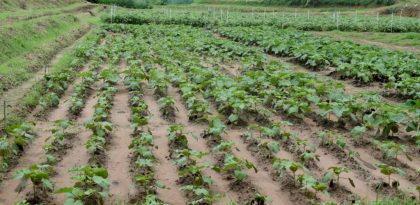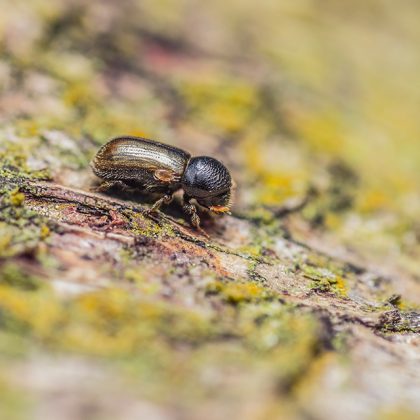Eco-friendly management of insect pests in okra ecosystem
Okra, is an important vegetable crop worldwide. The high nutritional attributes attract customer for a preferred food that assured sound health. But the rising concern of insect incidence facilitated by environmental factor put worries to million of farmers across the globe.


Among various, whitefly, leafhopper and blister beetle are the major limiting factor to meet the desired production. Damage is expanded from direct to indirect (i.e. virus transmission) directions, even not sparing the reproductive parts that leads to losses at a tune of 32-56% globally. The mitigation strategy has heavily relied on chemical pesticides that are detrimental to the environment and cause resistance, resurgence and secondary pest outbreak.
This triggered us to explore alternative toxicologically safe, eco-friendly pesticides such as biorationals products to manage this. Moreover, the current world is more concerned with healthy production through the organic approach. Hence, the study aimed to evaluate a) the bioefficacy of naturally derived products against whitefly, leafhopper, and blister beetle, b) ecotoxicological impact of biopesticides on natural enemies, and c) provide scientific information of biorational components having both pesticidal and plant growth-promoting activities.

The study found that quaternary mixture application of chili, garlic, neem leaf, and cow urine (CGNC) at 10% w/v was found effective in reducing leafhoppers (94.6%), whiteflies (95.2%), and blister beetle (94.6%) over control. The okra crop treated with CGNC produced a higher marketable fruit yield (18.44 Mg/ha) than those of other treatments. It was also observed that the application of CGNC had no phytotoxic symptoms on okra plants. Application of CGNC was found safer to the natural enemy’s population (spiders and coccinellids). In addition, these pesticide components are relatively cheaper, easy to access, and easy in handling for effective mitigation of pest problems.
This study may provide a novel solution for policymakers to design pest management strategies for organic okra farming and help in the expansions of organic okra cultivation on a global scale. This could ensure food safety and a healthy environment in long run.
Satyapriya Singh*ab and H. Lembisena Devib
*a Central Horticultural Experiment Station (ICAR-IIHR), Bhubaneswar, Odisha, 751019, India
bICAR Research Complex for NEH Region, Tripura Centre, Lembucherra, 799210, India
Image credits © Satyapriya Singh





